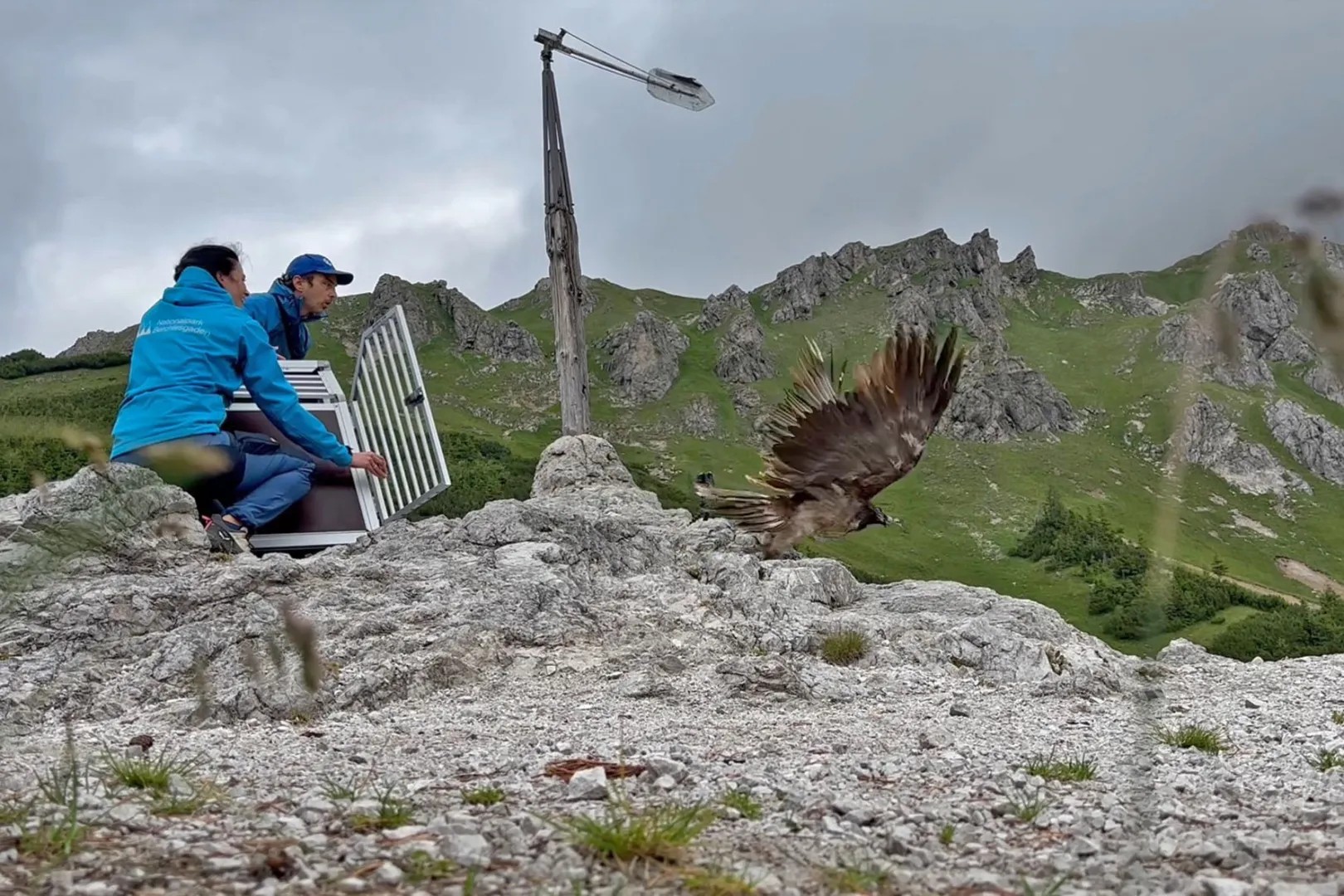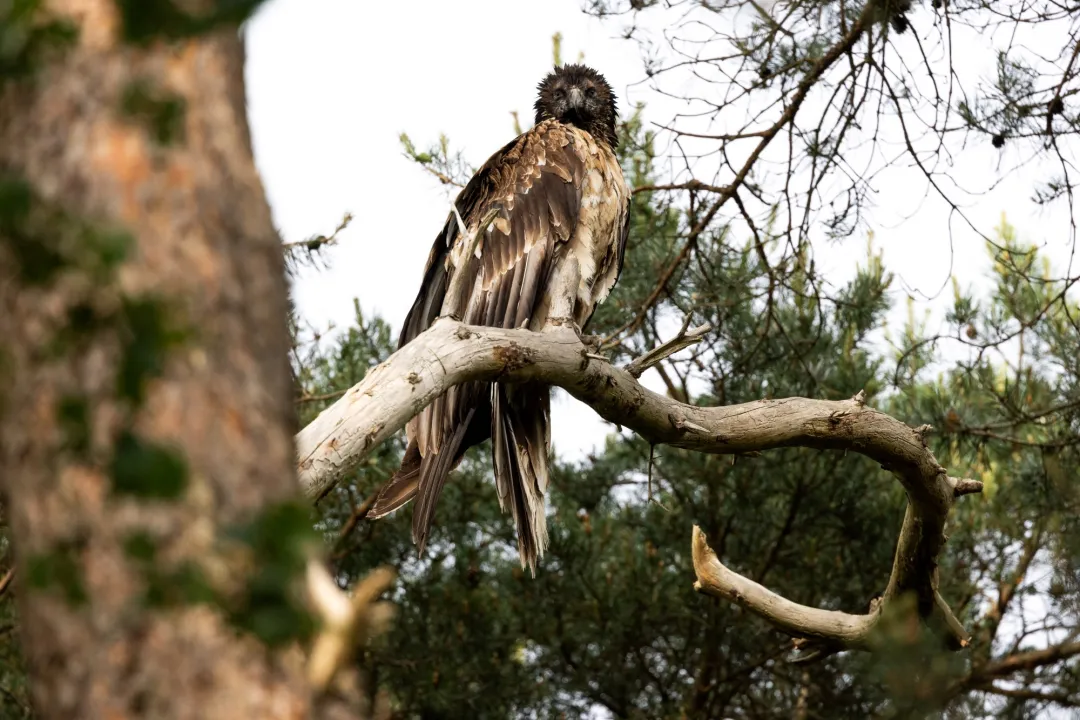The Bulgarian NGO Green Balkans has just announced that the captive bearded vulture pair they are holding within the bearded vulture captive breeding network coordinated by the VCF has laid an egg for the first time.
The birds arrived to Green Balkans´ Wildlife Rescue Centre in 2007, then as young – now, after nine years of hard work the very first egg was laid. The female has Cretan and Asian ancestors, while the male – one year older – is of Asian origin. The pair has been the only live Bearded Vultures in Bulgaria since their wild counterparts were driven to extinction in the middle of the last century.
Bearded vultures take 8 to 10 years to mature sexually, so in 2015 the first mating attempts were observed. Last year the female reacted quite aggressively, but in the beginning of this year the pair resumed their courtship and a month after the start of their copulations, the female laid her very first egg on the 7th February.
The young mother is very attentive and despite her lack of experience, she is sitting very tight on the egg. VCF experts are also monitoring the incubation period, through the web-cameras mounted in the aviary.
The breeding season in the bearded vulture captive breeding network – managed for conservation purposes – is in full swing. 30+ breeding pairs have so far laid 50 eggs, and 8 young have already hatched. Encouragingly, at least three new pairs are breeding for the first time – one in the Guadalentín Specialized Captive Breeding Centre (managed by the Junta de Andalucia), one in the Czech Republic and this one in Bulgaria.
Young produced in this captive breeding network are released in the three reintroduction projects ongoing, and we are hoping to release at least 12 young in the Alps (Switzerland, Baronnies, and maybe Austria), Grands Causses (Massif Central, France), Andalucia and Corsica this year.
The species has now been fully re-established in the Alps – one of the greatest wildlife comeback stories in Europe, and has started to breed last year in Andalusia. One day the time for reintroduction in the Balkans will come – for the moment, we are concentrating in reintroducing black vultures in Bulgaria (see here) and working with griffon vultures and minimising the still important threat factors affecting vultures in the country.



